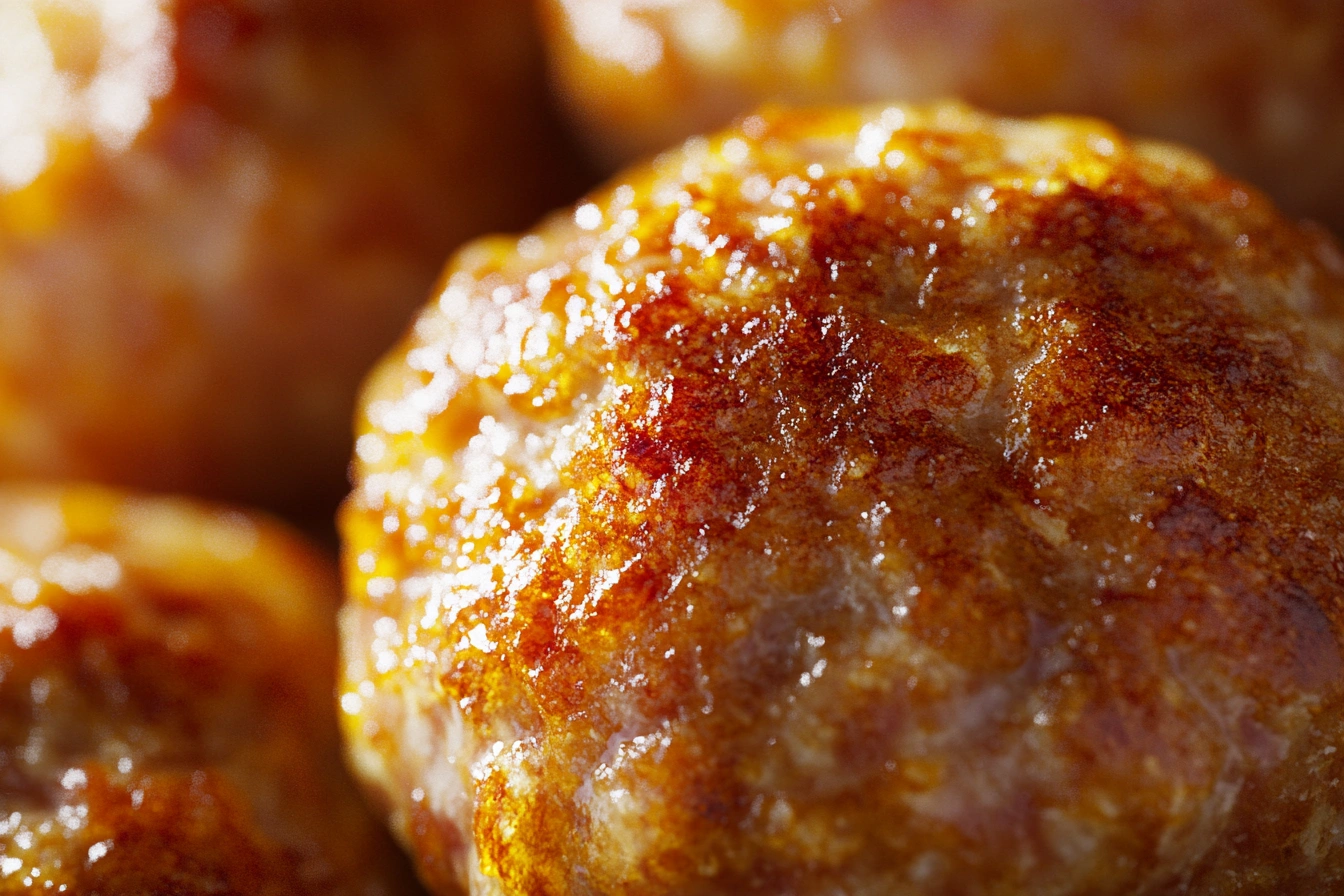Understanding Turkey Meat as a Breakfast Option
Introduction to Eating Turkey Meat for Breakfast
Why Turkey Is Gaining Popularity as a Breakfast Protein
In recent years, turkey meat has become a popular breakfast choice due to its lean protein content and health benefits. While traditional breakfast meats like bacon and pork sausage are often high in saturated fat and sodium, turkey provides a lighter, heart-healthy alternative without sacrificing flavor.
As people become more health-conscious, they seek high-protein, low-fat options that support weight management, muscle recovery, and overall well-being. Turkey meat—whether in the form of turkey sausage, ground turkey, or sliced turkey breast—fits well into a variety of dietary preferences, including keto, paleo, and high-protein diets.
The Nutritional Benefits of Turkey Compared to Traditional Breakfast Meats
Turkey is low in saturated fat and calories compared to pork and beef while still providing essential nutrients like B vitamins, iron, and zinc. It also contains tryptophan, an amino acid that helps regulate mood and energy levels.
Table of Contents
Overview of Turkey-Based Breakfast Options
- Turkey Sausage – A lower-fat, protein-packed alternative to pork sausage.
- Ground Turkey – Can be used in breakfast scrambles, bowls, and patties.
- Sliced Turkey Breast – A great option for quick, high-protein breakfast sandwiches.
- Turkey Bacon – A leaner alternative to traditional bacon.
- Turkey Omelets or Wraps – Combine turkey with eggs and vegetables for a balanced meal.
Nutritional Profile of Turkey Meat
Turkey meat is a nutrient-dense, lean protein source that offers significant health benefits compared to traditional breakfast meats. Let’s break down its macronutrients and micronutrients to understand why it’s a great breakfast option.
Macronutrients per 100g of Turkey Meat
| Nutrient | Turkey (100g, skinless, cooked) | Pork Sausage (100g, cooked) | Bacon (100g, cooked) |
|---|---|---|---|
| Calories | 135 kcal | 290 kcal | 541 kcal |
| Protein | 29g | 14g | 37g |
| Total Fat | 1.5g | 25g | 42g |
| Saturated Fat | 0.5g | 9g | 14g |
| Sodium | 90mg | 750mg | 1,200mg |
Calories – Lower Than Bacon and Pork Sausage
Turkey is significantly lower in calories compared to pork sausage and bacon, making it an excellent choice for those watching their calorie intake.
Protein – High-Protein Content for Muscle Growth and Satiety
Turkey is a protein powerhouse, providing more protein per serving than pork sausage. High-protein breakfasts help:
- Keep you full longer (reduces cravings and snacking).
- Support muscle growth and repair (ideal for fitness enthusiasts).
Fat Content – Lower in Saturated Fat Compared to Pork and Beef
One of turkey’s biggest advantages is its low fat content, particularly saturated fat, which is associated with heart disease. Replacing high-fat meats with turkey can support heart health and weight management.
Micronutrients in Turkey Meat
✅ Rich in B Vitamins (B6, B12, Niacin) – Essential for energy production, brain function, and metabolism.
✅ Good Source of Iron, Zinc, and Selenium – Supports immune health, oxygen transport, and antioxidant function.
✅ Contains Tryptophan – This amino acid helps produce serotonin, which improves mood and regulates sleep.
Comparison of Turkey Meat vs. Other Breakfast Proteins
| Protein Source | Calories | Protein | Fat | Saturated Fat |
|---|---|---|---|---|
| Turkey (100g) | 135 kcal | 29g | 1.5g | 0.5g |
| Eggs (2 large) | 140 kcal | 12g | 10g | 3g |
| Ham (100g) | 145 kcal | 18g | 5g | 2g |
| Plant-Based Sausage (100g) | 160 kcal | 12g | 8g | 2g |
Turkey is leaner than ham and eggs while providing higher protein levels. Compared to plant-based alternatives, turkey has fewer carbs and processed ingredients.

Health Benefits of Eating Turkey for Breakfast
Eating turkey for breakfast provides numerous health benefits, making it a smart choice for those looking to stay full, maintain muscle, and support heart health.
Supports Weight Management
- High protein content keeps you full longer – Prevents overeating and snacking.
- Low in calories compared to processed breakfast meats – Reduces overall calorie intake.
- Protein-rich diets boost metabolism – Helps the body burn calories more efficiently.
🔹 Best for: Those following a weight-loss plan, intermittent fasting, or high-protein diet.
Heart Health Benefits
- Lean protein with less saturated fat – Helps maintain healthy cholesterol levels.
- Lower cholesterol than pork-based alternatives – Reduces heart disease risk.
- Low sodium when unprocessed – Unlike bacon and sausage, fresh turkey meat has minimal sodium.
🔹 Best for: Those with high blood pressure, heart disease risks, or cholesterol concerns.
Ideal for Fitness and Muscle Recovery
- High protein supports muscle repair and growth – Perfect for athletes and active individuals.
- Rich in amino acids like tryptophan and leucine – Essential for muscle synthesis.
- Great post-workout breakfast protein – Aids in muscle recovery and reduces soreness.
🔹 Best for: Athletes, gym-goers, and those looking to build lean muscle.
Boosts Metabolism and Energy Levels
- B vitamins aid in energy production – Converts food into usable energy.
- Tryptophan supports brain function and mood – Improves focus and mental clarity.
🔹 Best for: Those needing sustained morning energy and improved focus throughout the day.
How to Include Turkey Meat in a Healthy Breakfast
Potential Concerns About Eating Turkey for Breakfast
Processed Turkey Products: Nitrates, Sodium, and Preservatives
While turkey is a healthier alternative to pork-based breakfast meats, processed turkey products—such as turkey bacon and turkey sausage—often contain nitrates, preservatives, and high sodium levels.
🔹 Health concerns with processed turkey products:
- Nitrates and nitrites – Used to preserve color and prevent bacterial growth but linked to potential health risks.
- High sodium content – Some store-bought turkey sausages contain 400-800mg of sodium per serving, which can contribute to high blood pressure.
- Additives and artificial flavors – May cause digestive discomfort and increase processed food intake.
✅ Solution: Opt for organic or natural turkey products labeled “no nitrates” and “low sodium.”
Balancing Turkey with Other Nutrients
Turkey is high in protein but lacks fiber. To create a balanced meal, pair turkey with:
- Vegetables – Spinach, bell peppers, mushrooms for fiber and vitamins.
- Whole grains – Whole wheat toast, brown rice, or quinoa for sustained energy.
- Healthy fats – Avocado, nuts, or olive oil for better nutrient absorption.
This ensures a nutrient-dense, well-rounded breakfast that supports digestion and energy levels.
Tryptophan and Morning Fatigue: Myth vs. Reality
Turkey is known for containing tryptophan, an amino acid linked to sleepiness, especially after Thanksgiving dinner. But does turkey actually make you tired in the morning?
🔹 Myth: Eating turkey in the morning will make you feel sluggish.
🔹 Reality: Tryptophan only induces drowsiness when combined with high-carb meals. On its own, turkey supports brain function, energy production, and serotonin levels.
✅ Solution: Pair turkey with healthy carbs and protein for an energizing breakfast instead of a meal that promotes drowsiness.

Best Turkey-Based Breakfast Options
Turkey is a versatile and lean protein that can be prepared in different ways to create a nutritious breakfast. Here are some of the best options:
1. Turkey Sausage – A Healthier Alternative to Pork Sausage
- Contains less fat and fewer calories than traditional pork sausage.
- Available in patties, crumbles, or links for easy meal prep.
- Best when homemade to avoid preservatives and excess sodium.
2. Ground Turkey Scramble – Lean and Protein-Packed
- Cook ground turkey with onions, bell peppers, and spinach.
- Scramble in eggs or egg whites for a high-protein, low-carb breakfast.
- Season with garlic, paprika, and black pepper for extra flavor.
3. Sliced Turkey on Whole-Grain Toast – Quick and Healthy Option
- Use roasted or deli-style turkey breast (low-sodium, nitrate-free).
- Add avocado, tomato, or cheese for a balanced meal.
- Drizzle with olive oil or mustard for extra flavor.
4. Turkey Breakfast Bowl – Eggs, Veggies, and Whole Grains
- Combine turkey sausage crumbles, quinoa, spinach, and eggs.
- Top with sliced avocado and salsa for a nutritious boost.
- Ideal for meal prepping in advance.
5. Turkey & Avocado Wrap – High-Protein, Low-Carb Option
- Use a whole wheat or low-carb tortilla.
- Fill with sliced turkey, avocado, spinach, and hummus.
- Wrap and grill for a warm, crispy breakfast wrap.
Best Ways to Cook Turkey for Breakfast
How you prepare turkey meat can impact its nutritional value. Here are the best cooking methods for a healthy and flavorful breakfast:
1. Grilling or Baking for Leaner Cooking
- Grilling or baking turkey sausage or patties reduces the need for oil.
- Use a wire rack to drain excess fat.
- Bake turkey bacon at 375°F (190°C) for 15 minutes for a crispy texture.
2. Pan-Searing with Olive Oil for Added Flavor
- Sauté sliced turkey or ground turkey in olive oil or avocado oil.
- Add onions, garlic, or bell peppers for extra taste.
- Use low-sodium seasonings like paprika, black pepper, and cumin.
3. Air Frying Turkey Sausage or Bacon for a Crispy Texture
- Air frying is a healthy alternative to deep frying.
- Cook turkey sausage or bacon at 375°F (190°C) for 8-10 minutes.
- Produces a crispy texture without excess oil.
4. Slow-Cooking Turkey in Meal Prep for Convenience
- Make batch-cooked turkey sausage or ground turkey in a slow cooker.
- Add spices and broth for extra moisture.
- Store in meal prep containers for easy breakfast options throughout the week.
Each method ensures turkey remains flavorful, juicy, and nutritious while keeping the meal low in unhealthy fats and high in protein.
FAQs
1. Is turkey healthier than bacon for breakfast?
Yes! Turkey is significantly lower in saturated fat and sodium compared to bacon. Turkey also contains more protein per calorie, making it a better option for weight management and heart health.
2. Can I eat turkey every morning?
Yes, as long as you choose lean, minimally processed turkey. Avoid eating high-sodium turkey products (like processed turkey bacon) daily, and instead opt for fresh or homemade turkey meals.
3. Is turkey a good source of protein for weight loss?
Yes! Turkey is high in protein, low in fat, and low in calories, making it ideal for weight loss and maintaining lean muscle mass.
4. What’s the best way to prepare turkey for breakfast?
The healthiest cooking methods include grilling, baking, air frying, or pan-searing with olive oil. Avoid deep-frying or adding excessive salt and sauces.
5. Does turkey help with muscle building?
Yes! Turkey is rich in protein and amino acids, which support muscle repair and growth. Pair turkey with eggs, whole grains, and healthy fats for a balanced post-workout breakfast.

